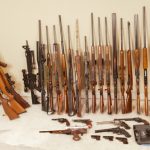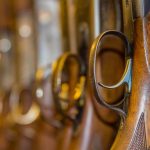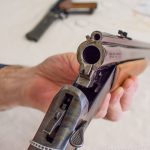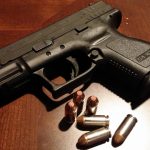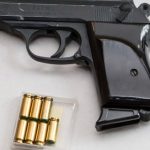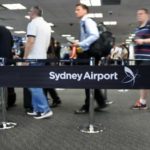Results of Recent Firearms Amnesty Triggers Debate
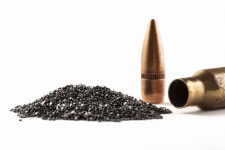
The final results of last year’s National Firearms Amnesty have been released, revealing that tens of thousands of previously unaccounted for firearms were handed-in Australia wide between July and September.
A total of 57,324 firearms were surrendered, including around 2,500 fully or semi-automatic guns, 2,900 handguns and a rocket launcher.
Nearly a third of the firearms were destroyed, with the remaining two-thirds either registered and returned, or conveyed to a licensed dealer for resale.
The highest number of weapons were surrendered in New South Wales (24,831), followed by Queensland (16,375), with Victoria in third place (9,175).
Handing in the weapons ensured that those in possession of unregistered firearms avoided the possibility of criminal prosecution and lengthy prison sentences.
‘Grey market’
The weapons were said to be on the ‘grey market’, which means they were neither in the hands of criminals nor legally registered.
Federal Minister for Law Enforcement, Angus Taylor, told the media: “It’s critical to get them off this grey market… so they don’t end up in the black market”.
But Senator David Leyonhjelm doesn’t believe the amnesty has achieved much at all, stating:
“The Government says it’s taking guns off the street. The guns that it gets in an amnesty were never on the street. They’re grandpa’s old guns. They were in the back of a cupboard or wardrobe in a ceiling somewhere. They were never going to be used in crime”.
“… the criminals who misuse guns… there’s no way they’d hand in their guns in an amnesty anyway”.
Public opinion
A 2016 survey titled ‘Guns-The Essential Report found that 45% of participants believe our gun ownership laws are ‘about right’ and 44% think they are ‘not strong enough’. Only 6% said the laws are too strong.
The survey reported that “[t]hese results replicate those from July 2015” and “[t]he results are consistent across voting groups”.
Small but vocal minority
Those who support the relaxation of gun laws represent an extremely vocal and politically powerful minority.
In fact, the NSW Shooters, Fishers and Farmers Party has occasionally held the balance of power in the upper house.
In 2013, the party used that power to negotiate exemptions for the hunting of feral animals in the state’s national parks in exchange for supporting the privatisation of the electricity network.
And every year, the firearms lobby, gun suppliers and manufacturers donate over $350,000 to Australian political parties.
In that context, the Tasmanian Liberal party has promised support for winding back gun control laws notwithstanding the National Firearms Agreement (the NFA).
Gun control advocates
On the other side of the coin, gun control activists argue that politicians and the general public have become “complacent” about adopting and enforcing the NFA. They point out that the overwhelming majority of Australians feel gun laws are either about right or too weak, and are against the proliferation of firearms.
“While Australians strongly support gun laws, many are of the view that everything was set in stone in 1996, but it wasn’t. Firearms laws are a political hot potato, and the Australian public isn’t aware gun laws are in trouble,” said Sam Lee, head of Gun Control Australia.
The organisation says that in 2016, there were “as many guns in private hands in Australia as there was at the time of the Port Arthur massacre”. There are currently 730,000 licensed gun owners in Australia and 2.75 million registered firearms.
A 2017 review of the NFA, commissioned by Gun Control Australia, reported that:
“Four consecutive formal reports have now found that no Australian State or Territory has at any stage fully complied with the 1996 or 2002 firearm resolutions which collectively formed the National Firearms Agreement.”
“In important areas, State and Territory legislation has been blocked or revised to dilute the effect of the NFA.”
“This report, commissioned and funded by Gun Control Australia, finds that on balance, both non-compliance from day one and two decades of political pressure have steadily reduced restrictions and undermined the NFA’s original intent.”
Softening of regulations
The report found that New South Wales recently permitted gun silencers, extended the availability of semiautomatic weapons and eased restrictions on licensing.
It stated that a number of jurisdictions have relaxed restrictions on purchasing multiple firearms and ammunition, have wound back licensing regulations, and relaxed rules on safe storage and background checks.
It explained that a national firearm registry, as recommended by the NFA, has never been implemented, making it more difficult to track the movements of firearms and licence holders.
Those who support gun ownership disagree, asserting that rules and regulations in a range of areas have steadily increased over time, despite the fact that registered gun owners are overwhelmingly responsible.
They argue that taking guns from law abiding citizens merely concentrates weapons in the hands of criminals, making it easier for them to commit crimes undeterred by the slim likelihood they will come across a lawfully armed individual.

